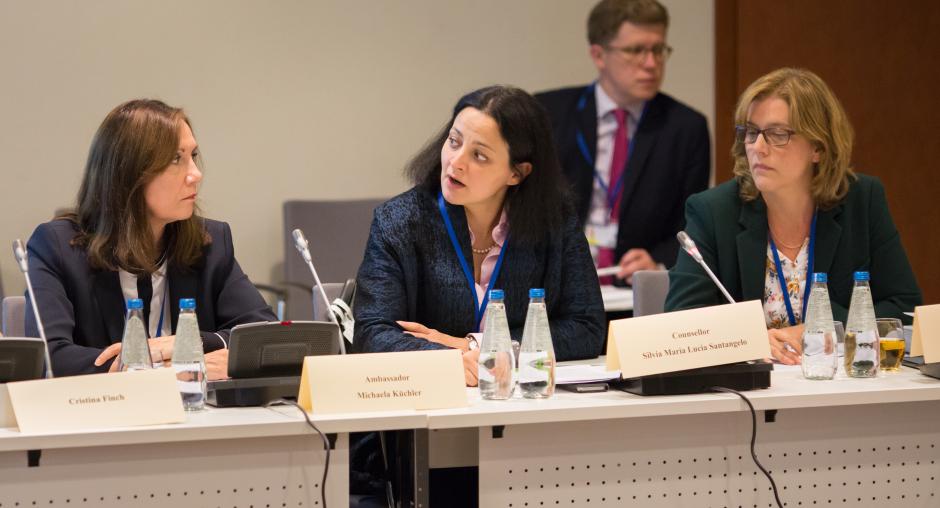Addressing anti-Semitism through education focus of event co-organized in Warsaw by OSCE Italian Chairmanship, ODIHR and group of OSCE delegations

How educational policy and practice can address anti-Semitism was at the centre of discussions at an event held on 14 September 2018 on the margins of the OSCE's Human Dimension Implementation Meeting in Warsaw. The event was co-organized by the OSCE Office for Democratic Institutions and Human Rights (ODIHR), the Italian Chairmanship of the OSCE, the International Holocaust Remembrance Alliance (IHRA) and the delegations of Austria, Germany, Luxembourg, Slovakia and Switzerland to the OSCE.
Participants first highlighted the importance of well-designed and supportive policies for ensuring that good educational practices are taken up across the sector. Cristina Finch, Head of ODIHR's Tolerance and Non-Discrimination department, highlighted the dual role governments have to play in this process.
"Policymakers need to ensure that anti-Semitism and other forms of prejudice are addressed through education that builds students’ resilience to it,” she said. “At the same time, governments need to ensure effective responses when anti-Semitism occurs in educational settings."
Counsellor Silvia Santangelo, Deputy Head of Mission for the Human Dimension of the Italian Chairmanship, added: "Combating anti-Semitism, along with other forms of intolerance and discrimination, is a priority for the Italian Chairmanship. Education is the most potent tool we have to build more inclusive and open societies, as well as for protecting the memory of the Holocaust from being distorted or erased.”
Attendees also discussed how education that promotes human rights and critical thinking and deconstructs conspiracy theories can play a crucial role in empowering young people to reject intolerance.
"Slovakia will continue to support the OSCE’s work in this area in 2019," said Counsellor Juraj Kubla, Deputy Head of the 2019 OSCE Chairmanship Task Force and Human Dimension Co-ordinator. "Tolerance, non-discrimination and respect for diversity are very important for peaceful co-existence in every society. It is our duty to listen to the voices of young people if we want to transform the experiences and recommendations we have heard today into successful educational policies and interventions that really address anti-Semitic attitudes or incidents. "
Participants also discussed the recent joint OSCE/ODIHR and UNESCO publication Addressing Anti-Semitism through Education - Guidelines for Policymakers, which assists government officials and educators in understanding, recognizing and challenging anti-Semitism. The guidelines were published as part of ODIHR's Turning Words into Action to Address Anti-Semitism project, which is funded by the German Ministry of Foreign Affairs.
